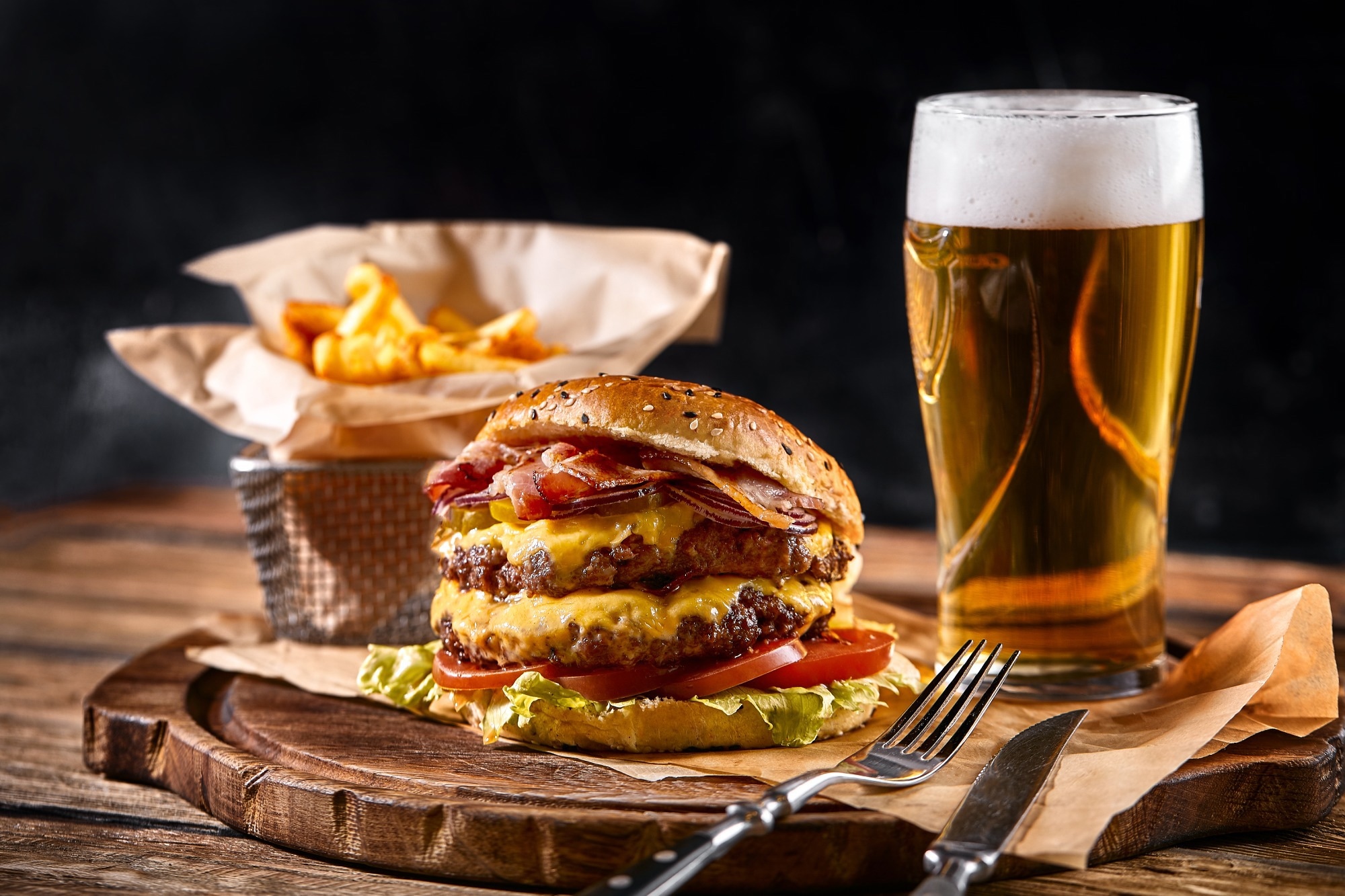Study finds that a high-fat diet boosts platelet activation and tumor cell homing—effects reversible with diet change or platelet depletion.
 Study: The Impact of a High -Fat Diet and Platelet Activation On Pre-Metastatic Niche Formation. Image Credit: Gerain0812 / Shutterstock.com
Study: The Impact of a High -Fat Diet and Platelet Activation On Pre-Metastatic Niche Formation. Image Credit: Gerain0812 / Shutterstock.com
A recent study published in Nature Communications explores the role of a high-fat diet (HFD) in promoting the formation of premetastatic niches (PMNs) and platelet activation.
The role of platelets in cancer metastasis
Obesity is a risk factor for tumor progression and metastasis in breast cancer (BC), as well as cancers of the endometrium, ovary, pancreas, and colon. Obesity promotes BC metastasis by a neutrophil-dependent mechanism that induces vascular dysfunction, thereby allowing tumor cells to migrate to the lungs through the vascular endothelium.
Obesity is also characterized by chronic inflammation that promotes platelet-derived and endothelial clotting. This hypercoagulability reduces survival rates in BC and other cancers, thus demonstrating the crucial role of platelets in promoting metastasis.
Despite these observations, it remains unclear what extrinsic factors may induce the tumor-promoting activity of platelets. Current evidence suggests that platelets can directly interact with leukocytes, as well as stromal, endothelial, and cancer cells. By surrounding tumors, platelets may also prevent the recognition of tumor cells by the immune system, thereby facilitating their metastatic dissemination.
A PMN is defined as a microenvironment in a secondary organ that is conducive to potentially circulating cancer cells. PMNs can be characterized by leaky blood vessels and activated platelets, with overexpression of the adhesion protein fibronectin observed in both cell types.
The precise influence of extrinsic factors like a HFD on platelet activation and the formation of PMNs remains unclear and warrants further investigation.”
About the study
The researchers of the current study used a diet-induced obesity (DIO) mouse model to investigate the role of an HFD in PMN formation in pre-metastatic lungs.
To this end, eight-week-old mice were maintained on either a HFD or standard diet for 12 weeks, following which E0771 breast cancer cells were injected into the mammary fat pad of 20-week-old female mice. In addition to this primary tumor model, the researchers also injected E0771 cells to the tail vein of 22-week-old mice to assess the role of a HFD on spontaneous metastasis.
At the study endpoint, blood was collected from all mice for platelet isolation and aggregation studies. Platelets were also subjected to flow cytometry to determine α-granule release following thrombin-induced activation. Platelets were also used for various in vitro assays including transendothelial migration (TEM) assay, scanning electron microscopy (SEM), Western blot analysis, and immunofluorescence staining.
HFD enhances platelet activation, fibronectin expression, and tumor cell homing
Platelets isolated from mice consuming a HFD were more likely to be activated and release adenosine triphosphate (ATP) following exposure to thrombin for five or ten minutes as compared to platelets obtained from mice consuming a normal diet. Platelets isolated from HFD-fed mice also exhibited greater fibrinogen adhesion, spreading, and aggregation.
Tumor-bearing mice consuming a HFD exhibited a greater concentration of platelets in metastatic organs. The vasculature of HFD lungs was also leaky, which may be attributed to increased adiposity in these mice or effects of the HFD dietary components.
Ribonucleic acid sequencing (RNA-seq) of mouse lungs led to the identification of several enriched gene signatures that are implicated in inflammatory responses, cell adhesion, and homeostasis. Six genes were found to be upregulated in both endothelial cells and platelets isolated from HFD mice, of which included fibronectin, which has been previously implicated in PMN formation.
The lungs and platelets of HFD-fed mice exhibited significantly higher expression of fibronectin, which fibronectin expression particularly high in platelet aggregates present in the lungs. The platelets of HFD-fed mice were also more likely to bind and internalize fibronectin as compared to those isolated from normal diet-fed mice.
Platelets are the primary source of fibronectin in the lungs of HFD mice reflecting their activation at PMNs.”
HFD promotes lung metastases through amplified tumor cell homing
Mice consuming a HFD exhibited larger primary tumor sizes and a 3.17-fold increase in lung metastases. Over 69% of metastatic lesions were present as individual cells, which suggests that the HFD specifically increases tumor cell homing and early adhesion events.
This observation was replicated in the tail-vein metastasis model, during which the HFD led to a significant increase in tumor cell homing to the lungs. When this effect was assessed in obese mice not consuming a HFD, no significant differences were observed, thus confirming the independent role of a HFD in enhanced tumor cell homing.
Reversing metastatic effects with diet change
In a separate experiment, the researchers investigated whether changing the mouse diet could affect tumor cell homing and migration. Although HFD-mice exhibited a significant increase in tumor cell homing, a dietary switch reversed these effects while also reducing lung vascular leakiness that was observed in mice consuming HFD. The dietary change also led to a significant reduction in tumor cell metastases.
Tumor cell homing is mainly affected by platelet activation, rather than vascular permeability.”
Immediately prior to tumor cell inoculation, another cohort of mice received anti-platelet antibodies. This platelet depletion led to a significant reduction in tumor cell homing and metastasis in both HFD- and normal diet-fed mice.
The activation of platelets in these niches by a HFD can be reversed by a dietary switch or platelet depletion during PMN formation, offering potential therapeutic strategies to reduce tumor cell homing to PMNs.”
Journal reference:
- Hergueta-Redondo, M., Sanchez-Redondo, M., Santos, B. H.V., et al (2025). The Impact of a High -Fat Diet and Platelet Activation On Pre-Metastatic Niche Formation. Nature Communications doi:10.1038/s41467-025-57938-9